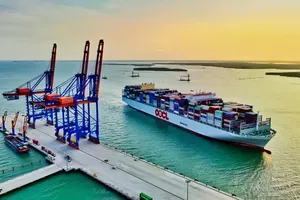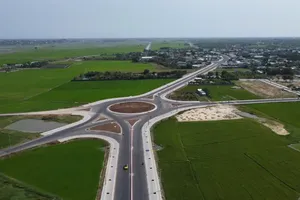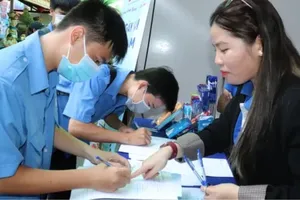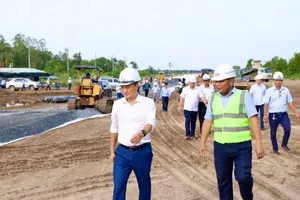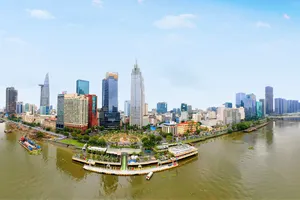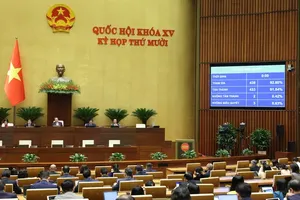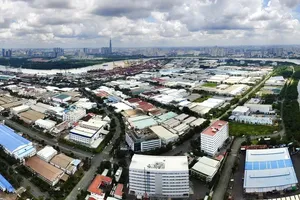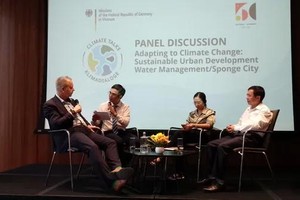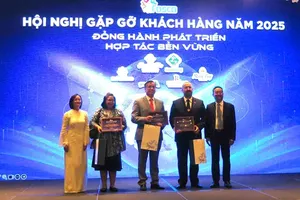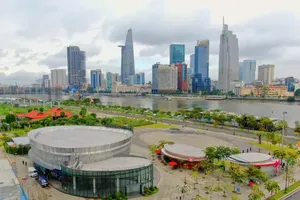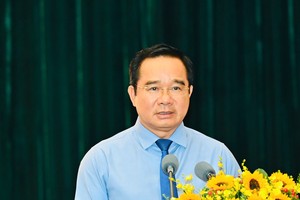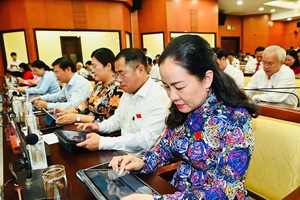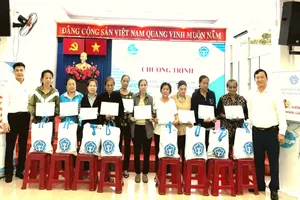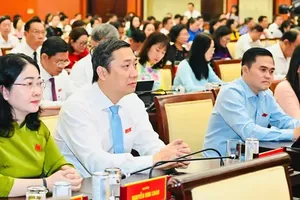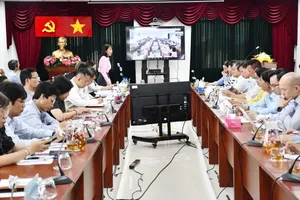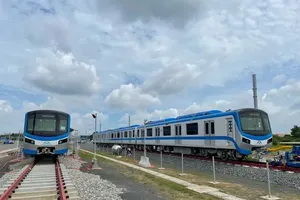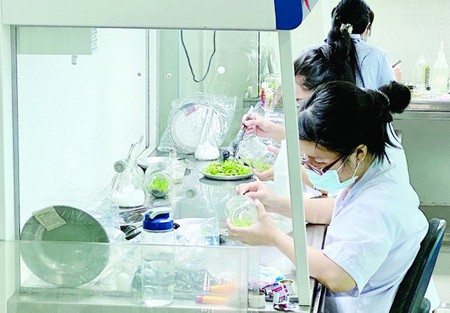
Director Nguyen Viet Dung first summarized new points of Decision No.17/2019/QD-UBND, issued on July 4, 2019 by HCMC People’s Committee, about attracting the talented and scientists in key fields for HCMC from 2019-2021, along with Decision No 4116/QD-UBND issued on November 9, 2020 about the procedure to attract these people.
He said that this procedure, including detailed steps, necessary time, human resources selection, contract signing, can be widely applied to all organizations and businesses in HCMC.
At the moment, HCMC needs people in 14 positions in the HCMC Department of Planning and Investment, the HCMC Agricultural Hi-tech Park, Saigon Hi-tech Park, the Institute for Computational Science and Technology. Since these organizations have prepared detailed job responsibilities, it is easy for the employment process.
Reporting the current status of attracting experts and scientists in HCMC, Director Dung shared that until 2019, the city was able to hire 19 professionals, including 6 foreigners and 8 Vietnamese living abroad. These people are renowned and prestigious in their fields. They mostly work in state offices to carry out scientific research and technology transfers.
He then cited the case of 5 foreigners who are experts working on the project to establish a center for research and technology transfer between Vietnam-Japan, and to collaborate with Daegu University (the Republic of Korea) to hold programs for human resources training.
However, the Director admitted that the number of experts coming to HCMC is not as expected, which clearly shows the weaknesses in related policies. What is more, these people are just for a limited quantity of fields.
He explained that the preferential policy to attract experts and scientists at the moment is mostly able to draw the interest of old professionals while neglecting the younger and more promising ones. The weakness is also revealed in the designation of these people. They are typically assigned to work as a leader of a project or research program. This is not appealing enough to retain them in HCMC for a long term.
Director Dung further cited the content of the policy, saying that an expert is initially financed around VND100 million (approx. US$4,300) in his or her first contract; his or her salary is calculated by multiplying the base one with the corresponding rate for a senior professional.
Each approved scientific research project, solution, technology upgrading, or idea that is of city level can earn an additional bonus of 1 percent of the city’s budget for that project (no more than VND1 billion or $43,300).
Despite this appealing policy, it is quite difficult to gain such a bonus.
The monthly allowance for experts at present is not high enough, also accounting for the trouble hiring more excellent specialists and scientists to stay and work for a long time in HCMC.
When being asked about possible solutions to amend the situation, Director Dung insisted that there is a need for a long-term method concerning both salary and working environment.
He added that the large salary gap between attracted experts and the current working staff creates a negative atmosphere at the workplace. With such a high salary, it is better to temporarily hire a professional for a specific mission or project rather than employing them permanently, since the financial status and morality in the organization will be undesirably affected.
Director Dung concluded the interview with a suggestion that state units sited in HCMC need to cooperate with one another to flexibly apply the hiring procedure and processing necessary documents to attract more experts and scientists in the future.
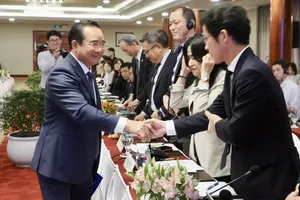
)
